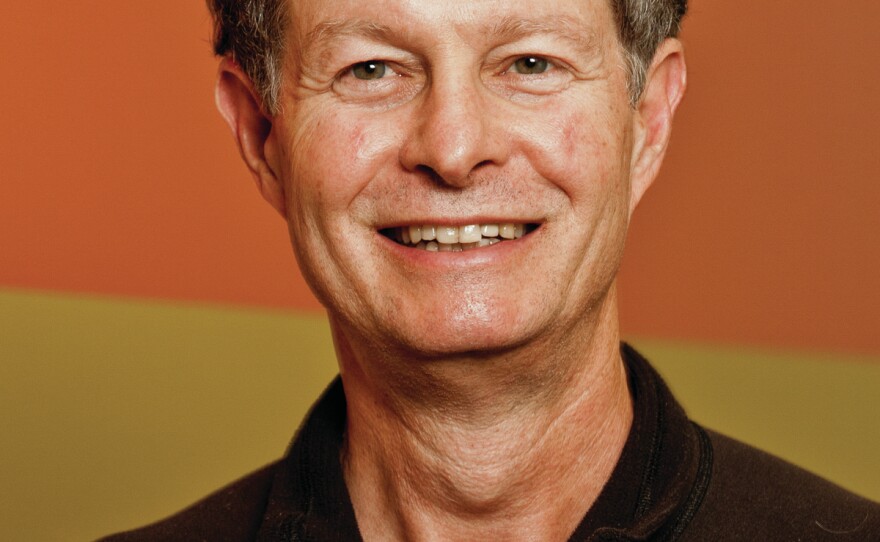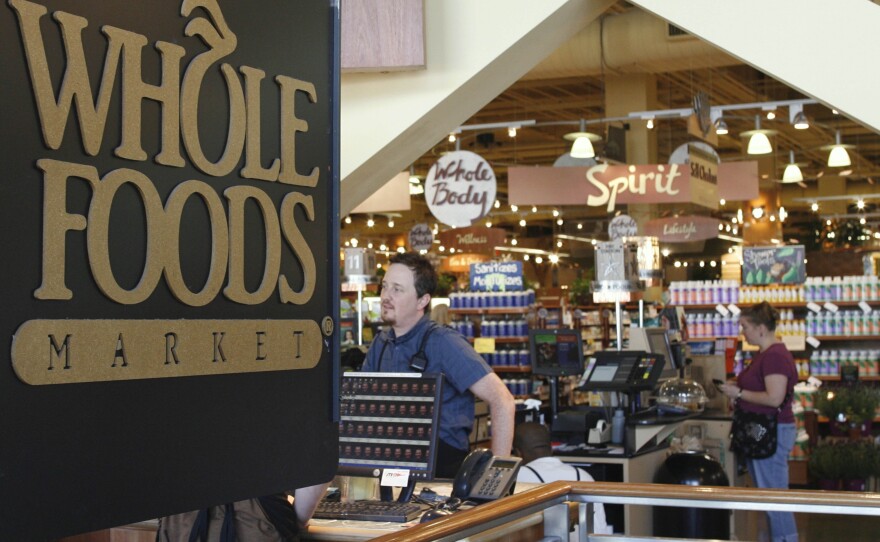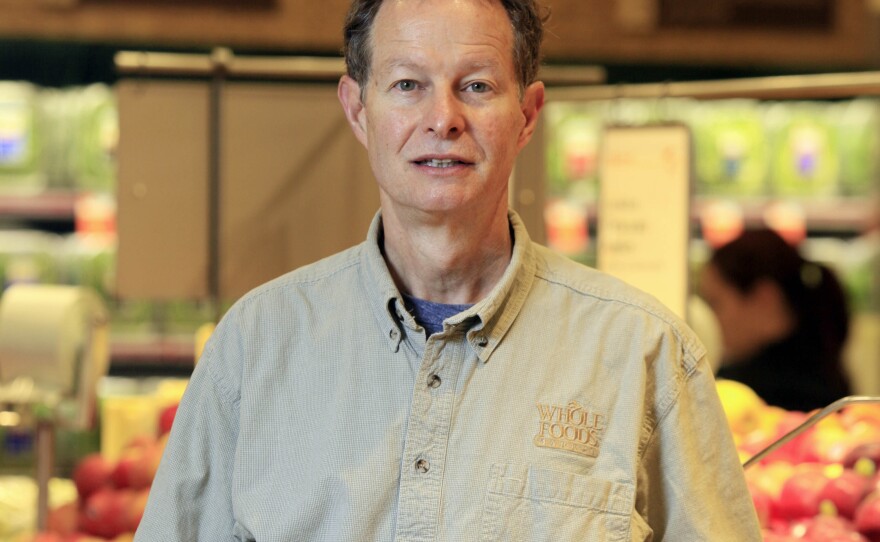

Whole Foods has played a key role in propelling organic foods into the mainstream. The specialty supermarket chain has more than 300 stores and plans to continue expanding. But outspoken founder and co-CEO John Mackey is not the crunchy granola liberal one might conjure while perusing aisles of earnestly labeled blue corn chips and gently misted red peppers.
In fact, he's a self-styled libertarian: a vegan who sells sustainably raised meat, a man who compares the government's health care overhaul to "fascism" but wants to improve American diets.
And he thinks big businesses have an obligation to change customers' perception that big corporations are "primarily selfish and greedy." (Not that he's opposed to profits. In fact, Whole Foods posted a 49 percent boost in quarterly earnings in November.)
Mackey sat down with Morning Edition host Steve Inskeep to discuss his philosophy and the new book he co-authored, Conscious Capitalism. Part 1 airs Wednesday, Part 2 on Thursday.
Mackey tells Inskeep that companies must have a higher purpose than just making money.
For example, when Whole Foods decided it wanted to stop selling overfished species of cod and octopus at its seafood counters, it didn't just abruptly cut off its suppliers. Instead, the company gave its suppliers three years to come up with a better way of fishing; during that time, the seafood stayed for sale -- but with a label of "unsustainable."
In the end, Whole Foods, working with the Marine Stewardship Council (we'll have much more on them later), was able to find one supplier of sustainable cod.
"You take a risk when you do that because some of your customers ... who don't care about sustainability, they're going to go shop at your competitor's store who has the fish, so you lose some business that way," Mackey says. "But it was the right thing to do."
What he doesn't think is right is President Obama's health overhaul and the new costs that coverage requirements will place on businesses.
When Inskeep asks him if he still thinks the health law is a form of socialism, as he's said before, Mackey responds:
"Technically speaking, it's more like fascism. Socialism is where the government owns the means of production. In fascism, the government doesn't own the means of production, but they do control it -- and that's what's happening with our health care programs and these reforms."
Still, Mackey sees room to cooperate with the administration on another front: efforts to reform the American diet, a pet project of first lady Michelle Obama.
"People in America are addicted to sugar, and to fat and to salt," he says, and as a nation, it's holding us back. "Food is intensely pleasurable, and people are afraid that if they change the way they eat, they'll stop having pleasure."
Still, he acknowledges how hard it can be to stick to a health-conscious diet. Restaurant meals, he says, rarely meet his personal dietary rules -- not just no meat, but also no oil or refined flour. Luckily, Mackey jokes, there's a Whole Foods to be found wherever he travels.
So our question to you, dear readers, is this: How big a role does a business leader's personal philosophy play in your decision to buy products from his or her company? Tell us in the comments section below.
Copyright 2013 National Public Radio. To see more, visit www.npr.org.






